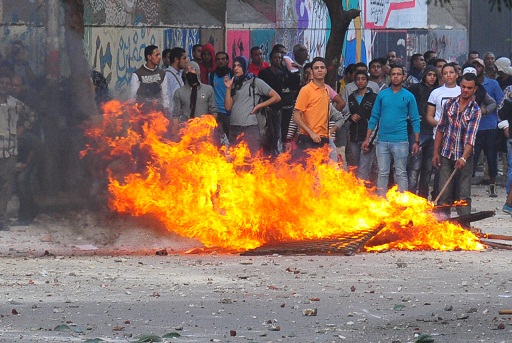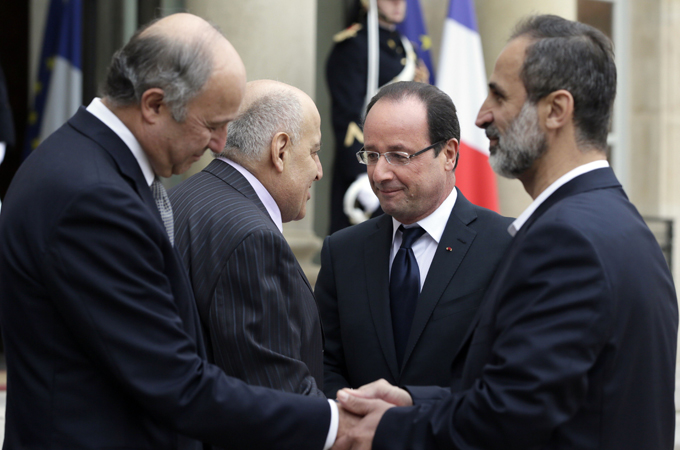CAIRO: In a bid to “protect the revolution,” attendees of the first Egypt Conference debated pressing challenges, including rebuilding state institutions, maintaining national unity, economic recovery, creating a new constitution and upcoming parliamentary elections.
Activists, politicians, artists and a diverse youth packed the Cairo International Conference Center on Saturday to take part in the discussion.
The conference nominated a National Council comprising 60 members from different political streams, striving for a well-rounded council representing the views of people all over Egypt. The Muslim Brotherhood, however, refused to participate in the conference.
Existing political parties will have three members in the council, while parties under formation will have two seats. Every movement gets one seat, whether existing or still being formed, as do civil society organizations, syndicates and other figures from different fields.
The conference included four sessions on: the basic principals for the upcoming constitution; a future vision for development and social justice; unifying the political and national powers for the upcoming legislative elections; and electing a National Council to aid and negotiate with the Supreme Council of the Armed Forces (SCAF).
Prominent figures and participating citizens spoke about their opinions on current events and their hopes for the future.
Judge Tahani El-Gebali, deputy head of the Supreme Constitutional Court as well as member of the organizing committee of the conference, presented a document on the principles of the new constitution.
The document outlined guarantees against the abuse of the article stipulating Islamic Sharia as the main source of legislation that include guaranteeing the constitutional right of people of different faiths to practice their religion, defining Sharia as the main undisputed principles, and having the article to solely address the legislator.
The paper outlined the main principles the researchers involved thought should be included when drafting the new constitution, such as article protecting the civil nature of the state, equality and different rights and freedoms include the right to strike and protest. It also suggested articles pertaining to strengthening Arab unity, in order to fulfill regional ambitions.
Former Mufti, Naser Farid Wasel, agreed with Gebali’s document.
“People were chanting ‘peaceful’ throughout the revolution and Islam is peace. We are calling for democracy, freedom, social justice, science, technology and this is Islam,” he said. As many applauded this statement, others in the hall chanted “civil.”
In the same session, Nasr Abdel Hamid, who talked about the future of the revolution, noted four challenges, first of which is modernizing, restructuring and rebuilding state institutions.
Second, he said, legislation in the upcoming period needs to ensure the peaceful transition of power, pointing out that there needs to be an open national dialogue on laws as they are being drafted.
Also, coalitions and movements formed before the revolution must stay united. On a final note, he said that now is the time to choose whether the blood of the revolution martyrs motivates people to move forward or merely turns into another nationalistic song.
On the youth’s perspective of constitutional principles, Ahmed El-Kilany said, “We need a civil modern state that is based on the concepts of citizenship, equality, respect of human rights [and] religious freedom, which were the headlines of the revolution and cannot be compromised or changes.”
Places of worship cannot be used for politics, he added, receiving a roar of applause from attendees.
A second document presented by economist and strategic affairs expert Abdel Khalek Farouk proposed solutions to deal with the “dilemma” that is the Egyptian economy after the January 25 Revolution.
Mubarak’s regime, he said, engaged in financial corruption. “When Mubarak started to rule Egypt, the country had only LE 4 billion in debt. By the time he was ousted, debt soared to LE 888 billion.”
The paper Farouk presented, outline discrepancies in the national budget and problems with previous economic policies. He said a fund that yielded up to LE 26 billion wasn’t included in the national budget and left under the control of the presidency.
In addition to demanding the inclusion of such fund in the budget, Farouk made several suggestions for economic reform that include reconsidering gas export deals, restructuring banking management and immediately setting minimum and maximum wages.
On behalf of the youth, Khaled El-Sayed spoke about the economy and social justice, criticizing the new law prohibiting strikes and blaming the current government for keeping the same economic policies that led to the injustices that fueled the revolution.
The third — and possibly most important — paper to be discussed explored the possibility of creating a unified electoral list of candidates for the next parliament. Candidates, according to organizers of the conference, must include Muslims and Christians, men and women, and workers as well as farmers with the aim of having as diverse a parliament as possible.
In a paper, political analyst Amr Hesham Rabie outlined voters’ lists, electronic vs. regular voting and electoral systems. In case of opting to use electoral lists he said tribalism should be taken into consideration rather than confronted and rejected. Gender, religious and sectoral diversity should also be taken into consideration.
Those who took part in the ruining political life, primarily members of the now disbanded National Democratic Party, should be banned from participation, he added.
From the National Coalition for Change, Abdel Gilil Mostafa said a conference of this ilk would not have been possible without the January 25 Revolution. “Two crucial issues ahead for Egypt, national unity and the Nile River,” he said.
Novelist Salwa Bakr, expressed her concern for female representation, “The upcoming parliament [must] have…females who truly represent the point of view of the Egyptian woman, unlike the National Council for Women.”
She emphasized the importance of education as the key to everything.
Featuring the participation of representatives of different political ideologies and geographical areas, the conference had its share of arguments. In the final session, veteran journalist Hamdy Qandil urged all to forget about the disagreements and focus on the principals everyone agreed on.
“The SCAF represent authority and the National Council will represent the people. We will engage in a dialogue with the SCAF, not headbutting,” he added. –Additional reporting by Sarah El Sirgany.


